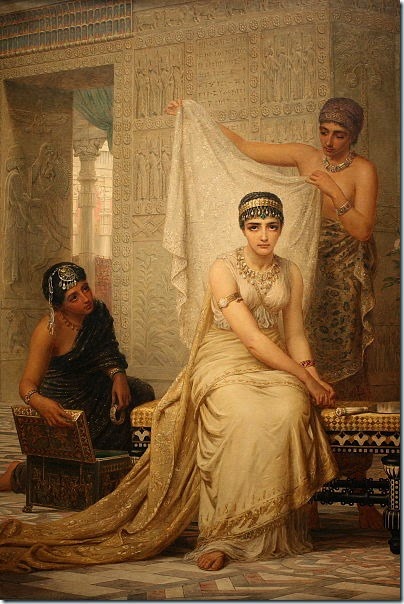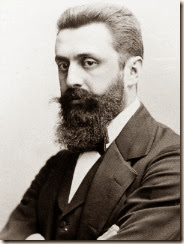Classic repost: I wrote this article just prior to Purim 2014 while examining the book of Esther. Enjoy!
Purim is here this weekend, and it's good to remember and celebrate God's deliverance of Israel. Some obvious ones: It’s intriguing to see anti-Semitism's deep roots in humanity, going back to 450 years before Messiah. It's interesting to note how God is not mentioned by name – yet is entirely present – in Esther.
But these things we’ve heard before.
What I want to you show you today is 5 unusual things that stood out to me as I read Esther this morning. Deeper things worthy of amplifying to Yeshua’s disciples.
The Jewish people are still central in God's plans
The book of Esther at first saw resistance from joining the Christian Bible as canon. Some saw it as "too Judaizing." Martin Luther, too, found he could never reconcile with this book. Esther amplifies the Jewish people to a point that made the Church fathers uncomfortable.
The amplification of the Jewish people is unmistakably present in Esther. Even Mordechai's famous plea to Esther drips in saturation with this theme, his statements thoroughly certain of divine protection for the Jewish people:
"If you remain silent at this time, relief and deliverance for the Jews will arise from another place, but you and your father’s family will perish. And who knows but that you have come to royal position for such a time as this?"
As a follower of Israel's Messiah, I believe that Jews and non-Jews have equal access to God and are joined together in the family of Israel.
Even so, it does not and cannot erase the special calling God has for the Jewish people, the natural branches of Israel. This should be evident in Paul's declaration that if Israel has experienced a temporary hardening of heart towards Messiah, with the result of the salvation of the nations, the Jewish people's return to the Jewish Messiah will be like life from the dead.
Let me repeat that so that you don’t skim over it as religious jargon: The Jewish people returning to the Jewish Messiah will be like life from the dead, and no amount of gentiles coming to faith in Israel’s God will change that.
Even Messiah's own words count Jerusalem and the Jewish people as the gatekeepers of Messiah, his arrival hinging on Israel's acceptance of "Baruch haba b'shem Adonai!”
For those of us in the Hebrew Roots world, we must be cognizant of this reality. Gentiles grafting into the commonwealth of Israel does not negate the special promises God has for the Jewish people. It doesn’t mean gentiles are worse than Jews, but rather, God has a distinct plan for the salvation of the Jewish people.
Those who joined Israel became Jews
This is a particularly controversial thing to say in light of the state of the modern Messianic movement. One group believes they join to Israel through loving Israel's God, Messiah, and Torah. Another group says one must undergo ritual circumcision, at which point, one is a Jew. Yet another group believes it is part of the lost tribes of Israel.
In Esther, towards the end of the book, we read something often omitted from modern Esther retellings. In those days, when the Jewish people were granted this divine reversal of fortunes, "many people from all nationalities joined them and became Jews."
We are not told what "becoming a Jew" in the 4th century BC entailed. But we do know that these people who joined the Jews became Jews themselves. The Biblical command mandating the celebration of Purim mentions this people:
The Jews resolved and took upon themselves, their descendants and all who might join them that without fail they would observe these two days [Purim] in accordance with what was written in [this book] and at the appointed time, every year; and that these days would be remembered and observed throughout every generation...
It reminds me of the Exodus, in which a multitude of non-Israelites joined Israel and identified with her. Hebrew Roots and Messianic gentiles are in this same boat: joining to the Jewish people and standing with Israel.
Does this mean Messiah-following gentiles should convert to Judaism and become Jews? I don’t think so. God's intention isn't for everyone to be a Jew. God has plans for gentiles, too, plans that in their fruition have seen billions of non-Jews turn to Israel’s God through Israel’s Messiah. (Hallelu!)
But it does suggest that joining Israel is a deeper thing than many in the Messiah-following world make it out to be. It is more than Torah observance. It is more than love for Israel's God through Israel's Messiah. It is more than love for Jewish people. At the very least, it is helping and supporting the natural branches of Israel in physical and tangible ways. Aligning oneself with Israel in thought and deed.
Are we really joined to Israel? I don’t think so, not in tangible ways that Jews recognize. That needs to be fixed.
God can use people with pagan names
It feels silly to have to say something that should be so obviously true. And yet, I have to say it because of silliness in our religion.
 The name Esther likely comes from the name of a pagan goddess. (The same one that Easter comes from.)
The name Esther likely comes from the name of a pagan goddess. (The same one that Easter comes from.)
Mordechai likely comes from the phrase, "follower of Marduk", also a pagan god.
While these names were likely given to these Jews by their captors, you don't see Esther and Mordechai waxing indignant over it. There were bigger fish to fry.
So many in the Messianic and Hebrew Roots world concern themselves -- perhaps too much -- with perceived pagan influences. Still others are caught up in names, especially names for God. Some people refuse to worship God unless a particular name is (or isn’t) used. (Can Hebrew Roots folks worship when we adore ‘HaShem’? Can Messianic Judaism folks agree when ‘Yahweh’ is praised and thanked? I can already sense your panties getting bunched up.)
And some religious friends change their given name in order to appear more religious, or to reflect their identity.
I understand why, and yet, here we have Esther and Mordechai, two names of likely pagan origin, and yet names are of little concern in Esther. There were bigger issues to tackle then, and so it is now.
It should be obvious to us that God uses people even if they don't have religious names.
And yes, God can use people even if their names are pagan in origin.
God can use people who do not fit the religious mold
Many of the pioneers and founders of the modern state of Israel were secular, agnostic, or even atheist.
 Theodore Herzl, the 19th century founder of Zionism, was agnostic. His opposition? The religious.
Theodore Herzl, the 19th century founder of Zionism, was agnostic. His opposition? The religious.
Herzl visited many nations and diplomats in hopes to garner support for a Jewish state in Palestine. When he approached the Pope and the Catholic Church, the Pope refused, saying that unless Jews converted to Christianity, the Church would not support a Jewish state.
Herzl saw opposition even among his own people. Certain European Orthodox Jewish communities opposed Herzl and his plan for a Jewish state in Palestine. They erroneously believed that only messiah could restore the Jewish people to Israel.
Religious people stood in the way of God's plans for the creation of the modern State of Israel.
 And in that same generation, Eliezer Ben Yehuda moved to Israel nearly a century before its founding and pushed for the resurrection of the Hebrew language. His major opponent? Jerusalem's ultra-Orthdox community. They opposed Ben Yehuda's Hebrew-only newspaper, HaZvi, eventually shutting it down after a year of fierce opposition. Restoring the holy language to a common tongue was a grave sin, you see.
And in that same generation, Eliezer Ben Yehuda moved to Israel nearly a century before its founding and pushed for the resurrection of the Hebrew language. His major opponent? Jerusalem's ultra-Orthdox community. They opposed Ben Yehuda's Hebrew-only newspaper, HaZvi, eventually shutting it down after a year of fierce opposition. Restoring the holy language to a common tongue was a grave sin, you see.
Again, it was religious people who stood in the way of divine mandate.
 Israel's first Prime Minister, David Ben Gurion, was by most accounts an agnostic or Jewish atheist. It was through his leadership Israel survived its first decade, a perilous decade characterized by repeated invasions from the Islamic world, motivated by the same anti-Semitic spirit that motivated Haman.
Israel's first Prime Minister, David Ben Gurion, was by most accounts an agnostic or Jewish atheist. It was through his leadership Israel survived its first decade, a perilous decade characterized by repeated invasions from the Islamic world, motivated by the same anti-Semitic spirit that motivated Haman.
Ben Gurion received little help from the ultra-religious. While the nascent Jewish state was fighting for its very existence, the ultra-religious sought exemption from military service in order to continue religious school. (A decision that is being overturned as I write this post.)
I tell you all these things to drive a point back to Esther and Mordechai.
In the book of Esther, like the founding of the State of Israel, God is hidden, and yet thoroughly present. And his work is accomplished through means religious people do not expect. Sometimes, it is religious people who are opposing God. Perhaps God used secular people because their ears were not so clogged by theology and dogma.
We view Esther and Mordechai as righteous individuals today, even though we know little about their faith life. And what we do know of them isn't exactly a perfect picture of religious life. Both were engaged with a pagan nation, working in the government of an idolatrous imperial power, eating at treif banquets held by a pagan king.
Heck, Esther was wed to a pagan gentile! And if that weren't enough, she was a WOMAN! You know, those people that Judaism restricts from singing, wearing tallits, or carrying Torah scrolls at the Western Wall.
(And – be honest – how many of us religious people would balk at the idea of our daughter marrying a pagan leader? Perhaps it was for this reason Esther was an orphan!)
Religious people balk at such things, and yet God accomplished his purposes despite the circumstances. Sometimes, religion can get in the way of us seeing clearly the divine plan.
As Messiah’s disciples, let us be opened to the possibility that God is at work outside our niche, and can work through people who don’t fit the religious mold.
Revelation of truth in its due time
When Esther was to marry the king, she did not reveal her true identity as a daughter of Abraham. Had Esther strolled into the King's court announcing she was a Jewess, perhaps she may never have wed the king, and in return, never had the opportunity to save Israel.
Messiah's disciples can learn something from this. First, many of Yeshua's disciples wear their faith on their sleeve. I understand why, but sometimes it is a turn-off for people. If we instead showed kindness and service -- did good works without expectation of return -- and without worrying about pushing our belief in Messiah, it can yield good fruit.
Esther did reveal herself to the King -- but only when the time was right. This is an example for us as Yeshua's disciples. "Preach Messiah always, and if necessary, use words."
Lessons learned from Esther
- The Jewish people are still central to God’s plans. We can say with Mordechai’s boldness and confidence, “relief and deliverance for the Jews will arise”, regardless of the theological forecasts of the religious.
- Like in the days of Esther, many will attach themselves to Israel, and yet, God’s promises to the Jewish people are not cancelled.
- God works through unlikely people. Esther and Mordechai both took on names from the pagan world, worked and lived in a pagan culture, and yet God used them for good.
- God works in ways that often confounds the religious. Esther was not a model religious figure, and yet God used this unlikely soul to accomplish salvation for Israel.
- God’s timing is not our own. Religious people can often be blustering, impatient, angry, indignant…but Esther’s example is one of patience, fasting, quiet trusting. In this end, this is what swayed the pagan king.
Take in these lessons from Esther, fine Kineti reader, as you remember God’s faithfulness this Purim.


No comments:
Post a Comment